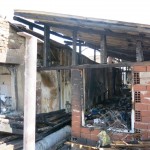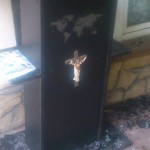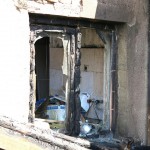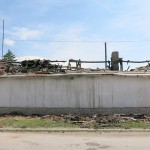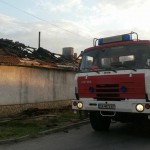Statement of the Church of God Regarding Same-Sex Marriage Court Decision
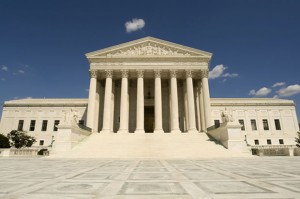 The June 26, 2015, ruling by the Supreme Court legitimizes same-sex marriage in all 50 states and overturns all state laws to the contrary. In a 33-page opinion, five of the nine justices agreed that no difference exists between same-sex marriage and the traditionally held union of a man and woman. Based on their interpretation of the Fourteenth Amendment, they declared that no legal impediment should stand in the way of any couple who wishes to marry.
The June 26, 2015, ruling by the Supreme Court legitimizes same-sex marriage in all 50 states and overturns all state laws to the contrary. In a 33-page opinion, five of the nine justices agreed that no difference exists between same-sex marriage and the traditionally held union of a man and woman. Based on their interpretation of the Fourteenth Amendment, they declared that no legal impediment should stand in the way of any couple who wishes to marry.
In a clarifying statement at the conclusion of the written opinion, Justice Anthony M. Kennedy made it clear that the ruling did not forbid churches from continuing to oppose the idea of homosexual marriage.
He stated, “Finally, it must be emphasized that religions, and those who adhere to religious doctrines, may continue to advocate with utmost, sincere conviction that, by divine precepts, same-sex marriage should not be condoned. The First Amendment ensures that religious organizations and persons are given proper protection as they seek to teach the principles that are so fulfilling and so central to their lives and faiths, and to their own deep aspirations to continue the family structure they have long revered.”
The Church of God stands with fellow Christians who understand that God intended marriage to be between a man and woman, as explained in Genesis and confirmed by Jesus, when He declared that the Creator has “made them male and female,” and that “For this reason a man will leave his father and mother and be united to his wife, and the two will become one flesh.” Our church joined in the Supreme Court case by means of an amicus brief requesting consideration for this millennia-old view of marriage propounded by Scripture.
We urge the pastors and members of the Church to continue to hold high the biblical standard for godly marriage. A legal definition of marriage may have changed, but the orthodox understanding based on God’s revelation has not changed. We call upon men and women to demonstrate to a confused world the fulfillment that results when they covenant in marriage to practice faithful and sacrificial love. Action by the International General Assembly in 2014 protects pastors and congregations who do not wish to participate in same-sex marriage ceremonies, based on First Amendment rights to religious freedom. On that basis, we recommend that each pastor adopt the following personal statement that echoes the official church action:
- I am a minister of the gospel, credentialed by the Church of God (Cleveland, Tennessee).
- It is the long-established biblical/religious belief and polity of the Church of God, which belief and polity I adhere to, that marriage is a spiritual union in which a man and woman are joined by God to live together as one.
- Based on my personal religious beliefs and the beliefs and polity of my credentialing church, I refuse to perform same-sex marriages.
- I base this refusal on my First Amendment guarantee of religious freedom, and on any and all exemptions granted to me under Federal and State laws.
- This refusal shall extend to my church’s refusal to allow its facilities to be used for same-sex marriages or any celebration relating to same-sex unions.
The ill-considered opinion of the activist members of this Court will have far-reaching and threatening aftereffects in coming months and years. It evidences again the supreme importance of electing a president who will seek out and appoint constitutional jurists rather than judges who would rather be legislators.The Christian Church has understood during most of it existence that it is part of a kingdom that is not of this world. It has faced much hostility and endured much suffering, but it remains steadfast and victorious. We believe that despite the best efforts of antichristian forces, it will ultimately triumph.
The Story of the Bulgarian Bible (video)
Preaching at Stewart Road Christian Ministries Center
Ministering at the Bulgarian Church in London
Bulgarian Church of God Building Burnt Down
The building of the Church of God in the city of Elin Pelin burnt down last week after a fire was set on the premises in the middle of the night. The church was built years ago and has faithfully served as a beacon in the local community until now. Under the current conditions it is impossible for the congregation to meet as at the same time they cannot make any plans for rebuilding until the investigation is over.
Pastor Tommy Karakolev, who is one of the oldest ordained ministers in the denomination, has addressed colleagues and friends for help. Through the years, his congregation has produced many ministers and pastors serving in churches in Bulgaria and abroad, and they have been all called to assist with their churches in any way they can. Please join us in prayer for the rebuilding of the church in an even better way and open doors for the congregation to continue meetings while the rebuilding lasts.

Historical and Doctrinal Formation of Holiness Teachings and Praxis among Bulgarian Pentecostals
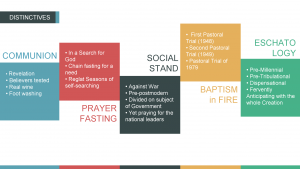 Research presentation prepared for the Society of Pentecostal Studies, Seattle, 2013 – Lakeland, 2015, thesis in partial fulfillment of the degree of D. Phil., Trinity College
Research presentation prepared for the Society of Pentecostal Studies, Seattle, 2013 – Lakeland, 2015, thesis in partial fulfillment of the degree of D. Phil., Trinity College
In conclusion, it must be noted that like many other places around the world, Bulgarian Pentecostalism began and continues to be in the periphery of both social and religious life. The movement has been persecuted as new, extreme, outcast and even satanic, but in the end Pentecostalism prevailed from the periphery. The only problem with holding strong in the periphery of society is that you spend all your money, all your time, all your motivation, everything you have to change the center – to change reality itself. It demands an extreme internal passion to continue and to become a movement of social influence. For the external observer this makes no sense. The time and resources spent could be so much helpful somewhere else. Perhaps, in an environment that is more suitable for the center – more controlled by the center. And an environment that does not make the center look bad.
But when this environment is not the center itself, then the periphery becomes a public enemy to the centralized society and is discarded as crazy, obscene and even inhumane. To the point that after giving it all, you start to feel like it was all spent for nothing.
Then you get back to the mission that is more important than our feelings or emotions and convince yourself with all you have left, that the end result is worthy. And then one day you wake up in the center of reality. Even more, you become the center of reality.
And the question remaining is how to balance the center with the periphery. If we were always in the center of culture, religion and economics, we would have never heard the voice of the God of the periphery. The God of the enslaved, oppressed, persecuted, poor, sick and suffering – God of the miraculous…
Baptism in the Fire of Persecutions as the Final Stand for Holiness
 Historical and Doctrinal Formation of Holiness Teachings and Praxis among Bulgarian Pentecostals (Research presentation prepared for the Society of Pentecostal Studies, Seattle, 2013 – Lakeland, 2015, thesis in partial fulfillment of the degree of D. Phil., Trinity College)
Historical and Doctrinal Formation of Holiness Teachings and Praxis among Bulgarian Pentecostals (Research presentation prepared for the Society of Pentecostal Studies, Seattle, 2013 – Lakeland, 2015, thesis in partial fulfillment of the degree of D. Phil., Trinity College)
The eschatology of the first Pentecostals in Bulgaria was definitely Premillennial, built around the suffering of the church and the coming final deliverance. “Christ shall return in person,” not just in spirit or presence, read the Pentecostal Union’s first Declaration of Faith. But first they were to be tested in a baptism of fire…
After the 1923 unrest in Bulgaria, Pentecostal missionary Dionesy Zaplishny was abducted, severely beaten and held in a well for a week. His health was never the same and he passed away at an early age in 1935. But this was only the beginning of the persecution upcoming with the Communist Regime.
Bulgaria’s Pentecostal movement entered the oppression period split and divided. The westernized denominational structure, which Nikoloff proposed in 1928, never fit the existing Pentecostal churches and was unable to unite them as a whole. When the communists took over in 1944 they used the existing church defragmentation to infiltrate and manipulate the congregations. Thus, the eschatological suffering of the church experienced its prime under Communist dictatorship.
In 1948-49 two consecutive trials targeted evangelical pastors effectively sentenced fifteen of them and virtually beheading the evangelical movement in Bulgaria from its leadership. When a new generation of leaders became involved some 30 years later, another similar trial imprisoned six of them in 1979. The evangelical churches were left without any leaders, except the ones placed under the control of the communist state. The congregations that refused to accept them were outlawed and marginalized with no contact with the outside world. But through all these trials and tribulations, the believers learned how to survive the persecution and overcame…


